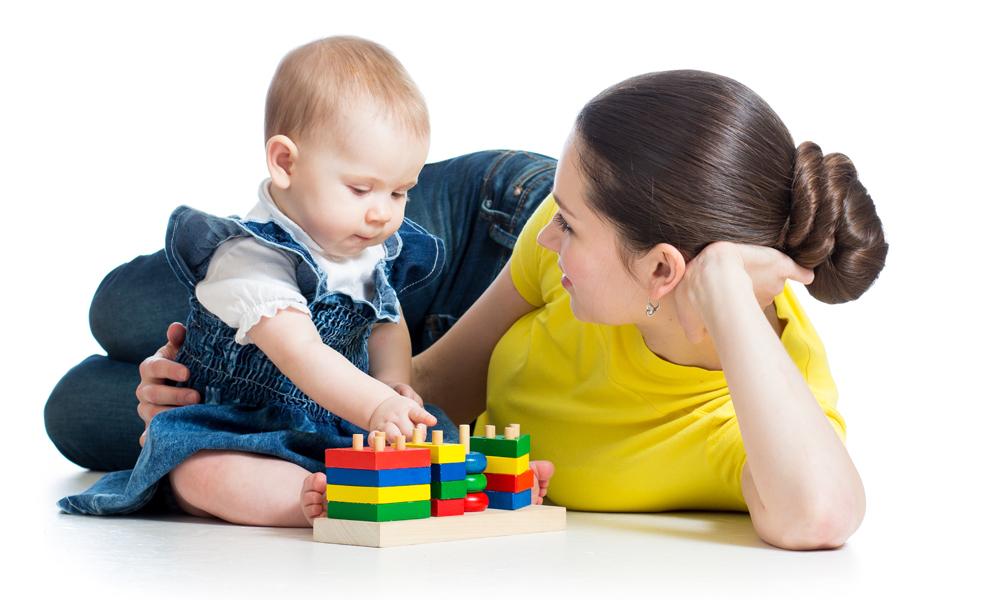
Daycare, Grandma or Baby-sitter?
What is best for your child: growing up with its grandmother who loves it, having a professional baby-sitter or being in daycare, in the company of other children and experienced tutors? Let's look at the factors that will help us take the first important decision for the upbringing of our child.
If we choose the solution of an experienced baby-sitter
The Pros
• The child remains in the familiar and protected environment of our home
• No need to wake up your child early in the morning to take it to daycare. This means that it can sleep as much as it wants and we can be spared the morning stress.
• The baby-sitter will strictly follow the program we will set. The child goes on a walk every day at the same time, eats and sleeps without hassle.
• The baby-sitter is (or at least should be) completely dedicated to the care of the child. She can read to it, teach it things, make various constructions and in general engage it in creative activities.
• It is not so prone to infectious diseases. It remains protected from diseases and we need not waste it our summer leave come autumn.
The Cons
• Choosing the right baby-sitter for our child is a difficult decision and only ours to make. It requires time, research, a "sharpened" instinct and can be a stressful procedure.
• No matter how good and "checked" the baby-sitter is, she is still a new person in our house, in our family, who spends time with our child while we are away. This may make us feel anxiety, doubts, jealousy, and even guilt.
• A baby-sitter costs more than the other two solutions.
• The child spends many hours with the baby-sitter (especially when the weather does not permit going out for walks) and thus lacks the stimuli that will help in its development, it may grow bored, complain, want other children for company.
• In contrast to daycare, where contingencies are managed by a group of tutors, the baby-sitter is alone, which means that we should have a ready emergency solution if she takes ill, if she is stuck in traffic in the morning, if she needs be absent for some reason, or if she just decides to leave us.
Tips for better adjustment to the baby-sitter
• Ideally, the baby-sitter should come to your home, and not the child to go to hers. This means that the change for the child will not be so dramatic. It will feel comfortable as it will be at home, close to its favourite toys, so adapting to the new situation without its parents will be easier.
• We ensure that the child gets to know the new person in its life as smoothly as possible. We cannot bring the baby-sitter suddenly at home and leave the child alone with her on day one. The child needs time and we are obliged to secure this for it. In the first few days, we sit together with the baby-sitter and the child to allow it to feel safe with her and we explain to the child (no matter how young it is) that this lady is here to take care of it and stay with it, while mum is at work.
If the baby-sitter does not speak Greek
Having the child come into contact with a language other than its mother tongue can only be good. There are only two cases where this may prove bad for the child:
• When the two languages are mixed and used interchangeably to a large extent, i.e. when the same sentence has words in both languages.
• When the baby-sitter who cares for the child speaks in a language that she does not know well because she did not learn it during her childhood. E.g. patchy Greek or English
If we choose the solution of daycare
The Pros
• The child learns new things constantly, spends its time creatively, cultivates its skills through games, songs, paintings, constructions etc.
• The child interacts with other children and develops its sociability.
• Mum trusts the organised daycare environment, where there are other babies other than her own, more easily, rather than a baby-sitter she does not know well or two old people like its grandfather and grandmother.
• In contrast to the usually lenient environment at home, the daycare has rules and a program the child must follow, regulations it must respect.
• The solution of the daycare is very cost-effective. An indicative cost for municipal daycare is 60 euros for two months.
The Cons
• If you do not want to pay the charge for the school bus or if choose to take the child to daycare and back, you will need to always be on time in the morning and afternoon.
• Especially in the first year in daycare, as it comes into contact with so many children, your child will constantly get various infections, which means that you must be prepared: it will spend most of its time at home, so you must have an alternative for the times when it is sick.
• Municipal daycares close for long periods during the holidays, in the summer and... when there is a strike. Thus, you need to ensure an alternative carer for the child.
Tips
• It is preferable that the child has learned to walk before going to daycare. The right time is when the child turns eighteen months, when it will have fully learned to walk... and do acrobatics.
• Ideally, your child should spend a few hours at the daycare at first and gradually increase its stay to its full working hours.
• If its regulation allows this, daycare can be combined with the child's grandmother or baby-sitter, who can take it home early.
• We should always reassure our child, by explaining the reasons that we are sending it to daycare. For example, say: "I am taking you to daycare and will come to get you later. At the daycare, you will meet all your friends and tutors". This should be repeated every day, we need to talk to the child and tell it what is about to happen.
• Do not cajole the child, as it will be afraid that something bad is going to happen to it or to us.
• If your child is under 6 months old, when it returns from daycare, you should give it time to recognise you again, to remember your scent and your voice. Only when it returns home does a child of that age really rediscover its mother. This does not happen in either in the daycare or on the way back. This may seem surprising, but you must remember that your child needs its own space, its familiar environment, the voices of dad and mum, its bed, toys and room.
If we choose the solution of its grandmother
The Pros
• The child stays with its grandma, so we are sure it is with someone who loves it and is willing to take care of it in the best possible way.
• This option is the most cost-effective!
• We can feel safe. Its grandmother will not only look after our child, but will cook for it and do ...overtime if we need to stay longer at the office or decide to have a quick coffee after work!
The Cons
• Grandparents tend to spoil their grandchildren. It is therefore very likely that the child we receive on our return home will be a... different child.
• Grandmothers - and their friends - find it difficult to say no to a child begging for candy bars, potato chips, TV or French fries! If we do not agree with all this, we are very likely to have a hard time trying to convince its grandmother to comply.
• Grandmothers are usually of a certain age, which means that they may not be able to meet the needs (for walks and games) of a child. This can create a problem for the child, which will be forced to spend its time indoors at home (quite likely with other grandmothers or watching TV), or its grandmother can overdo it, trying to please her grandchild.
Tips
• Explain to its grandmother that there are limits to the child's wants and that this is good for everyone - but mainly for the child itself..
• Give grandma a mobile phone that we can use to communicate with her whenever needed.
In conclusion
Whichever of the three options you choose, it is important for your child to have realised that, beyond mum and dad, there are other people in its environment with which it can feel safe. Beyond the natural maturation brought by the passage of time, our own contribution is significant for it to realise this. So, make sure your child comes into contact with other children in parks, playgrounds etc. When, from the early months of its life, your child socialises with people, friends and relatives, playing with them, being held by them, being spoken to and sung songs by them etc., it starts feeling familiar with them and as it grows it can more easily accept that it will spend some time with other people, apart from its mother and father. Ideally, each time you go on a visit, take your child with you, so that it can get to know all its uncles, aunts, grandparents, etc. Through this process of meeting other loving persons, our child gradually develops a sense of being prepared, both for meeting new faces, or for being apart from the constant attention of its mother and father.



